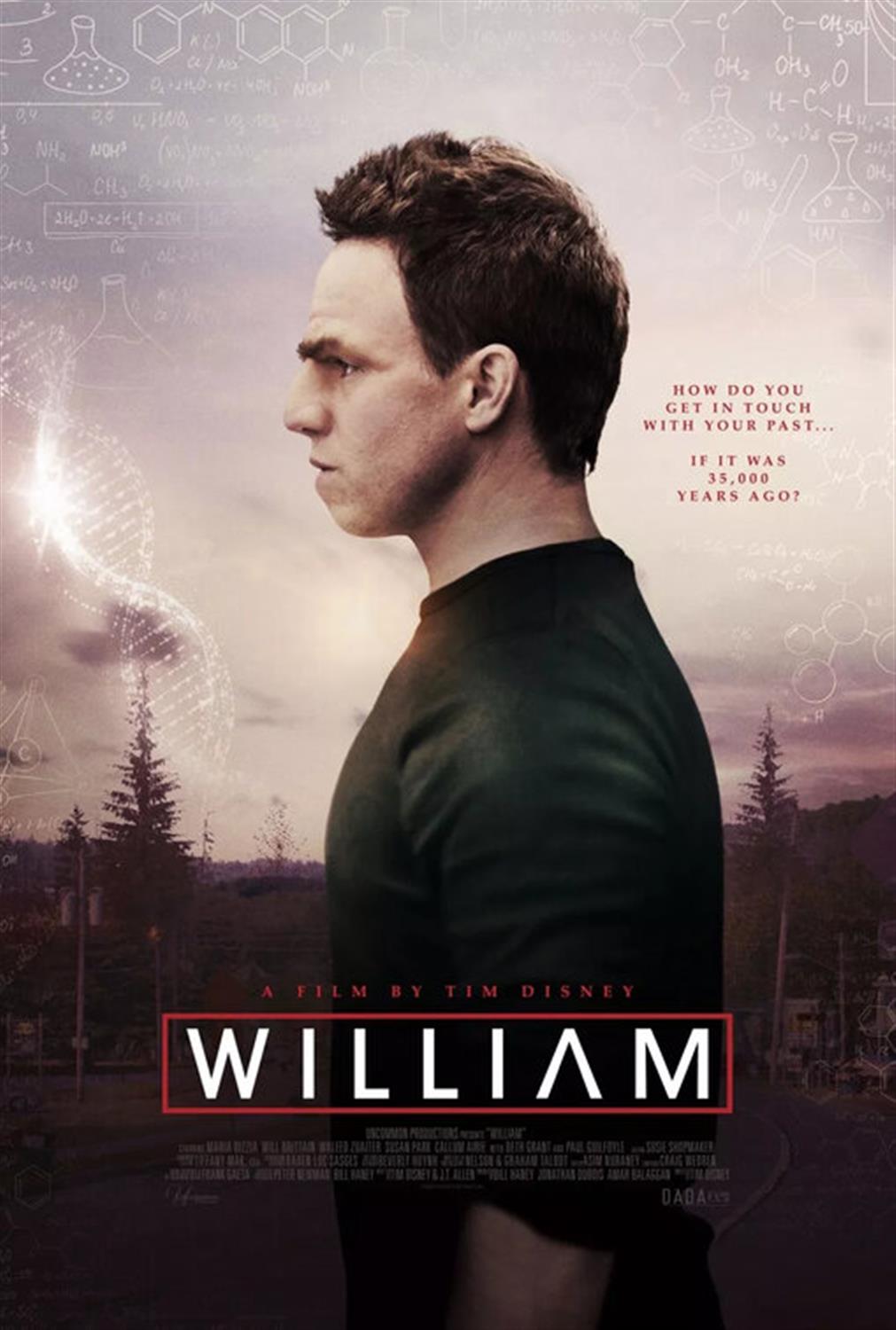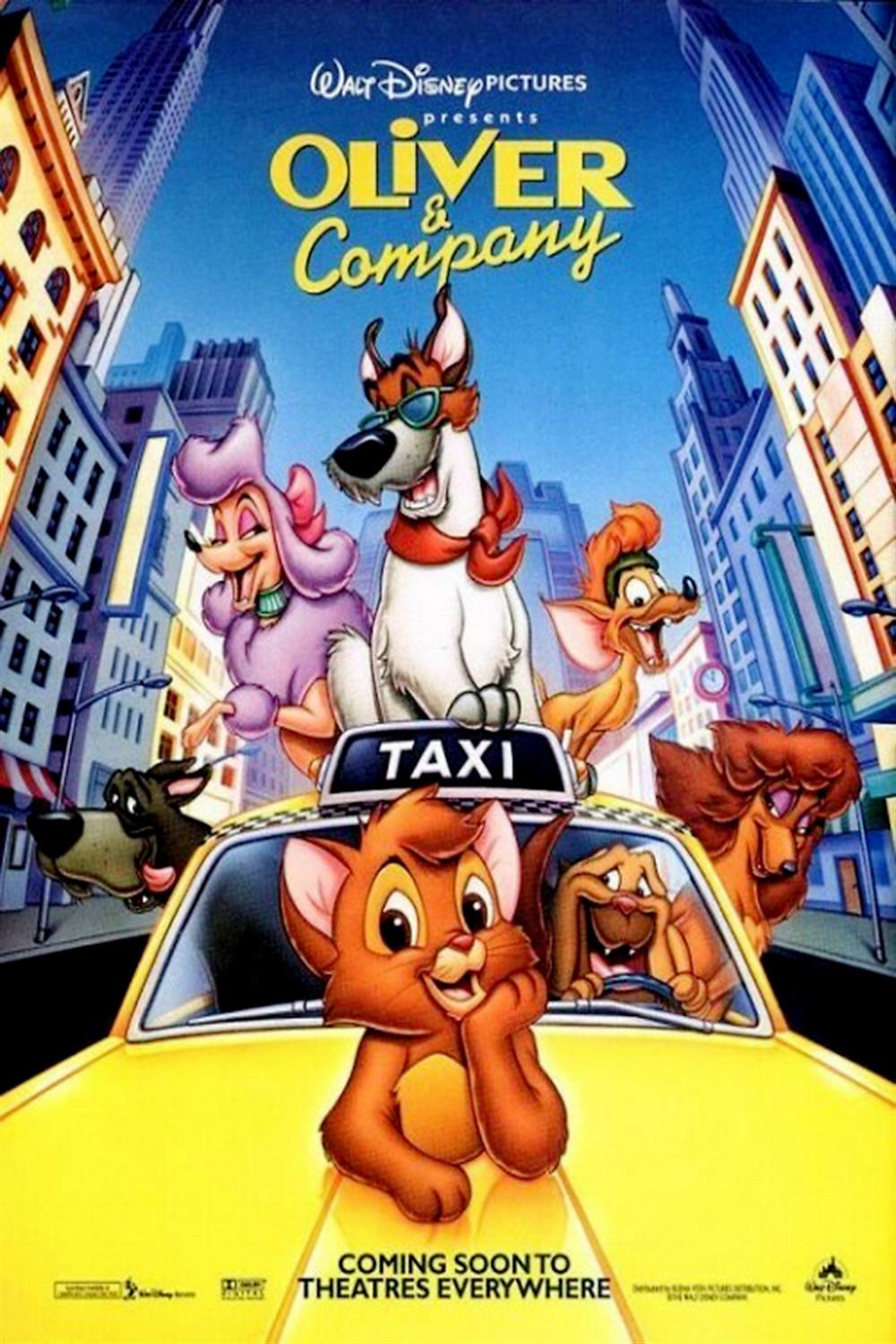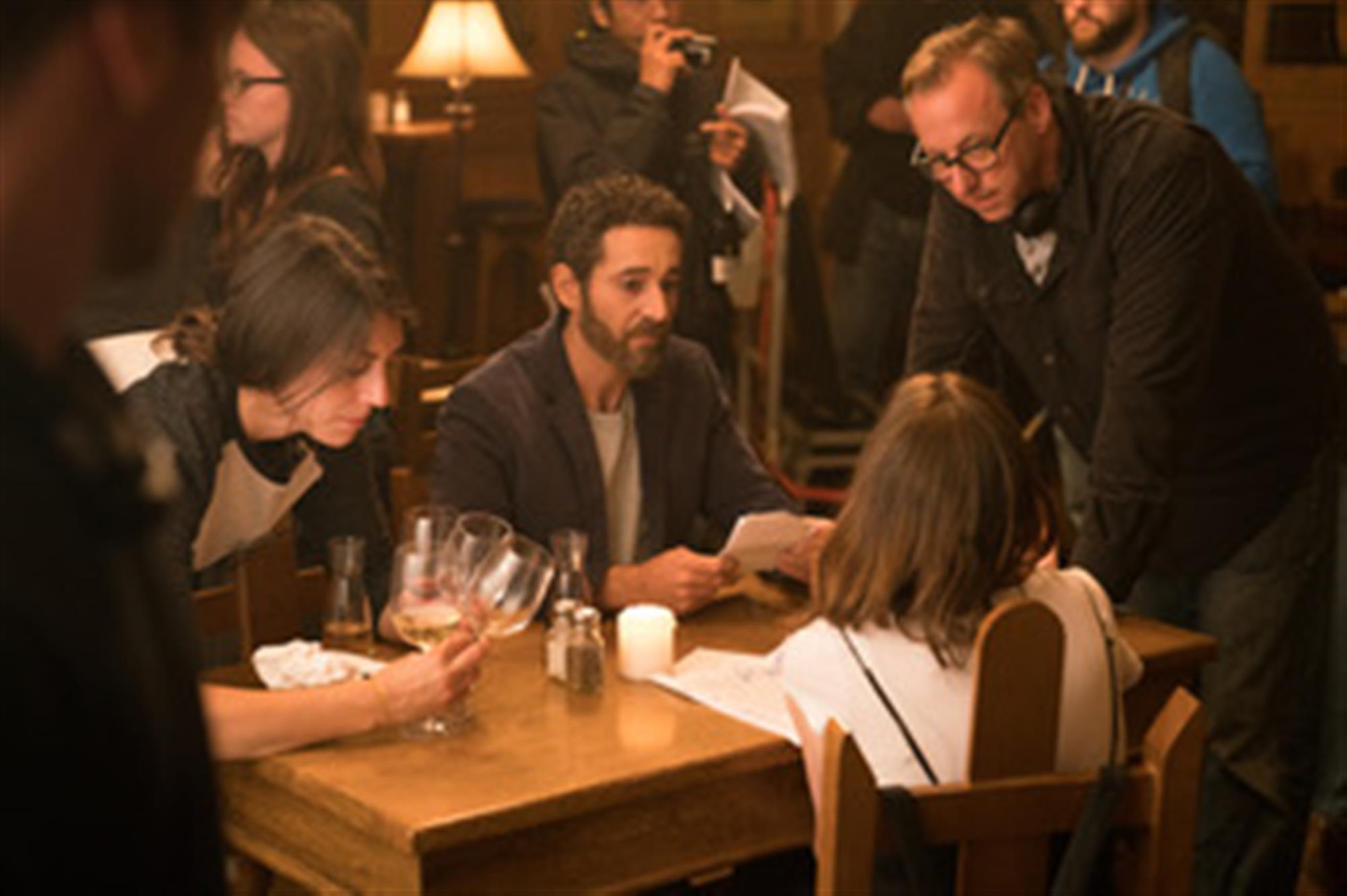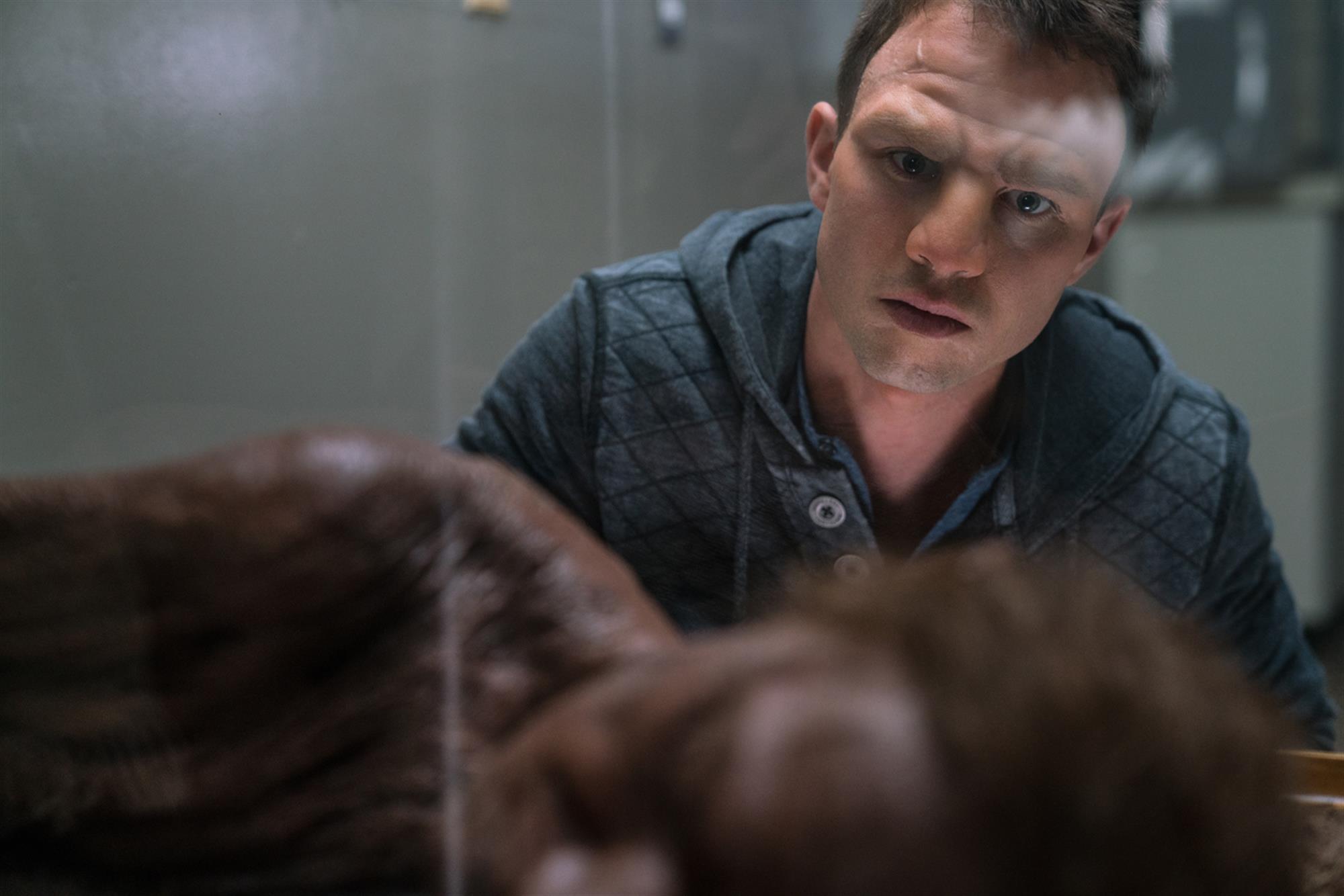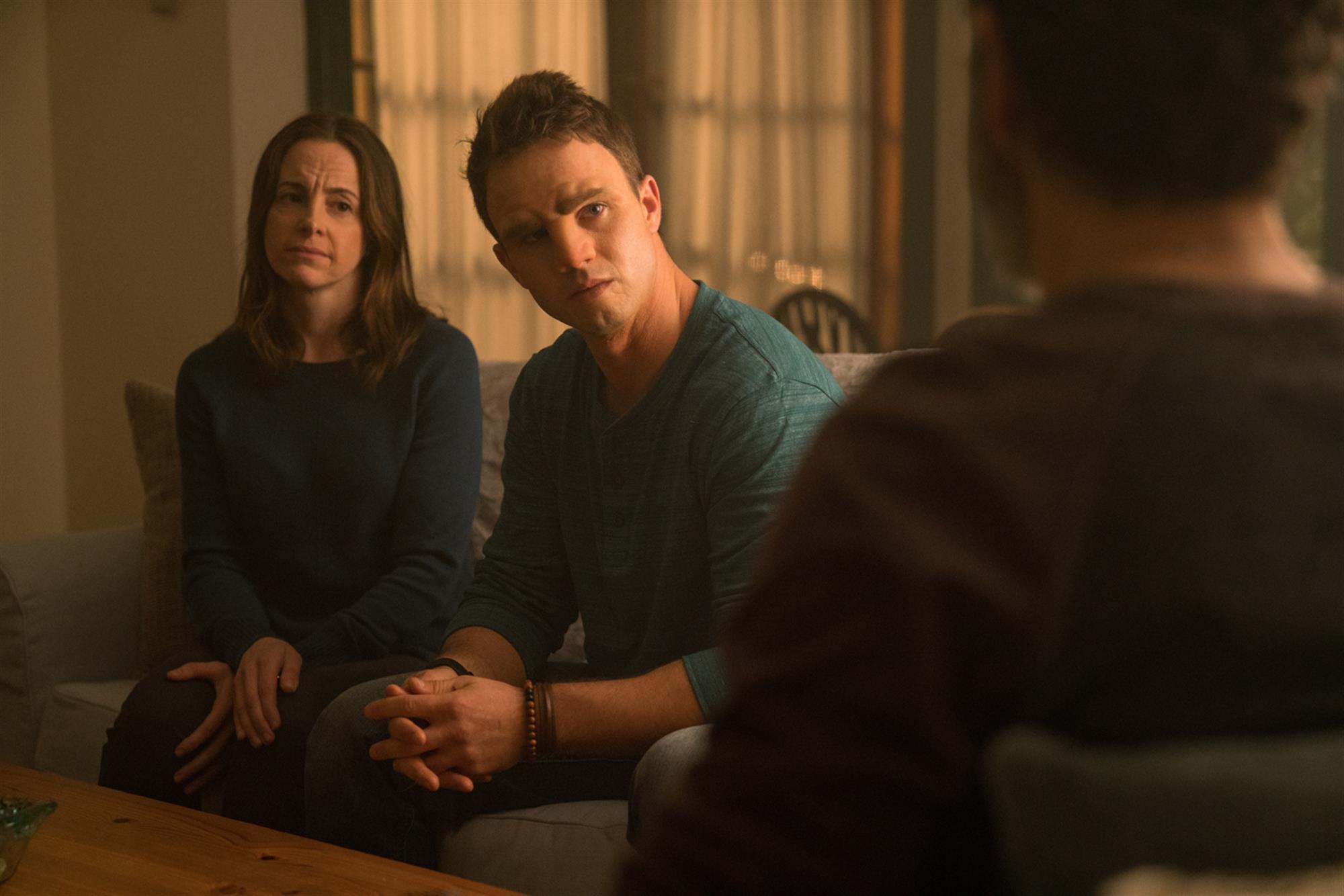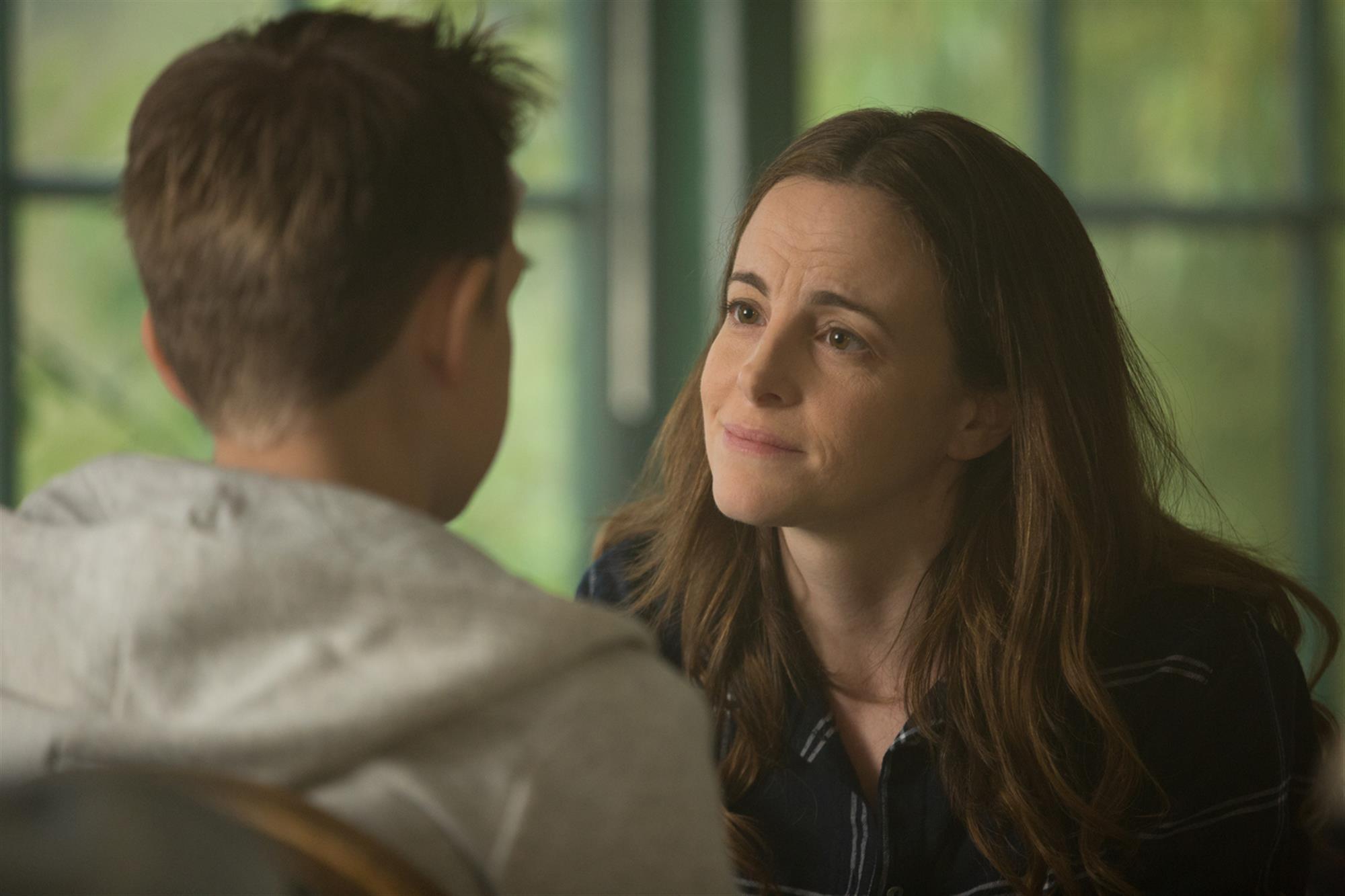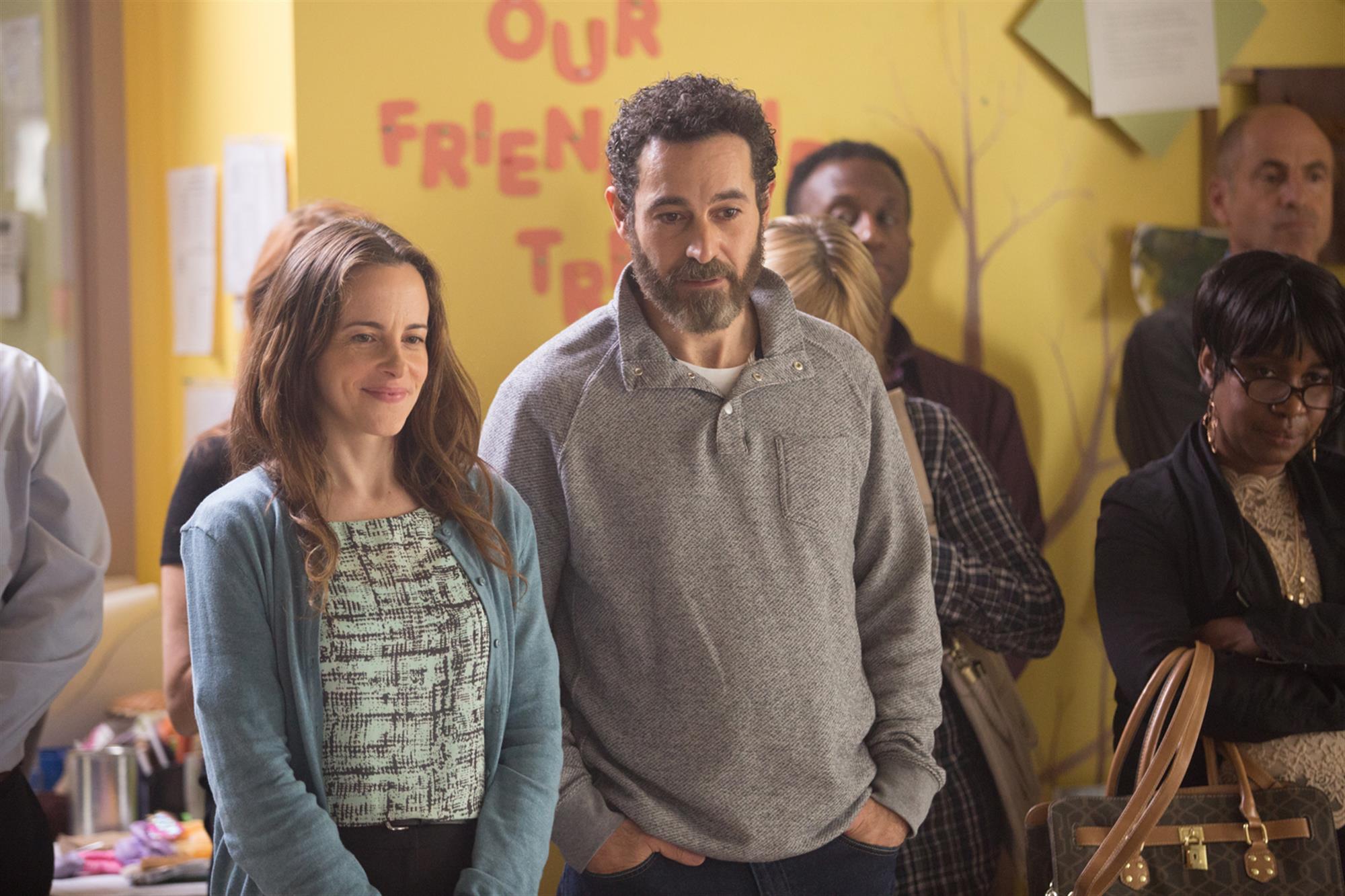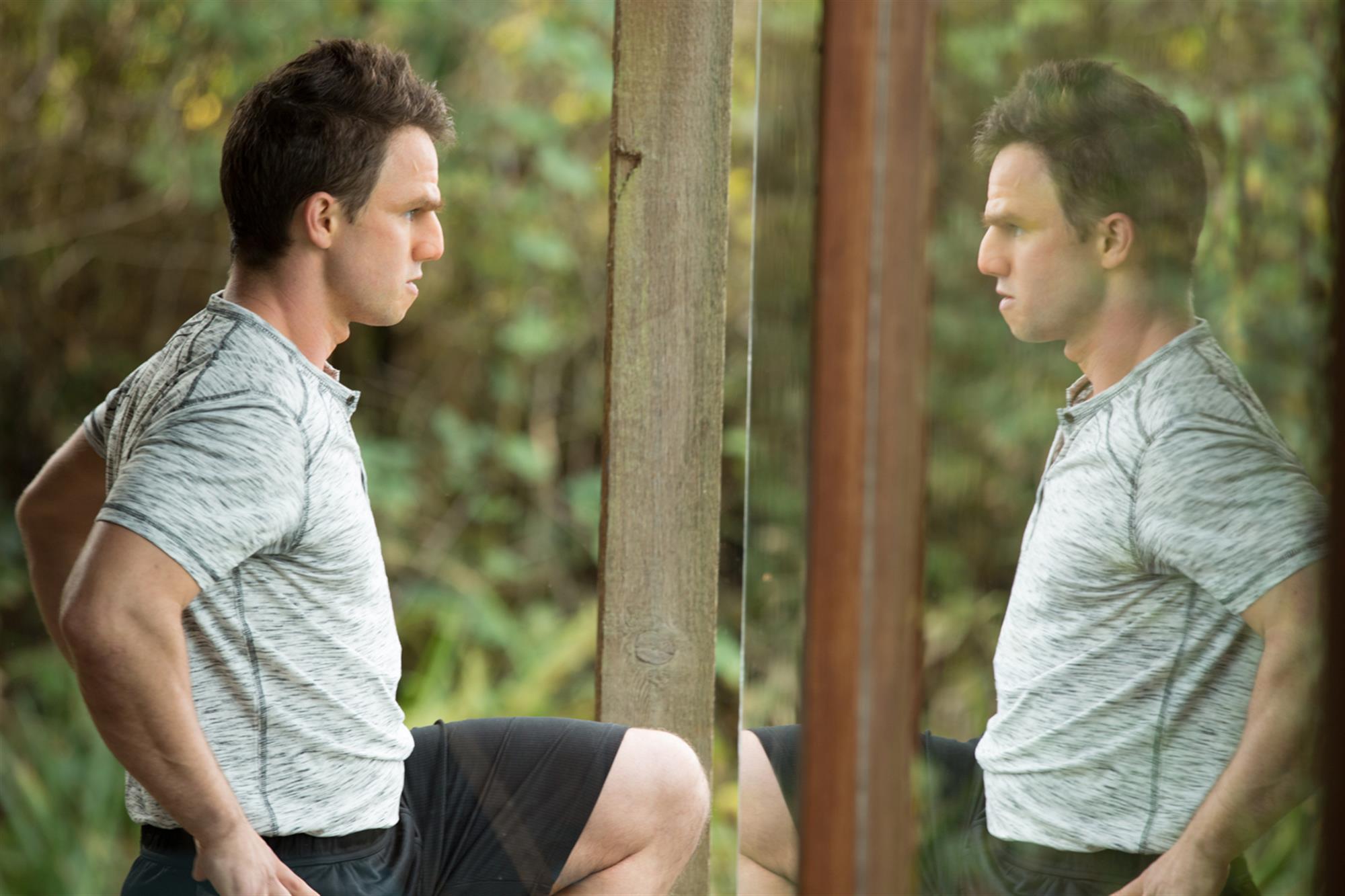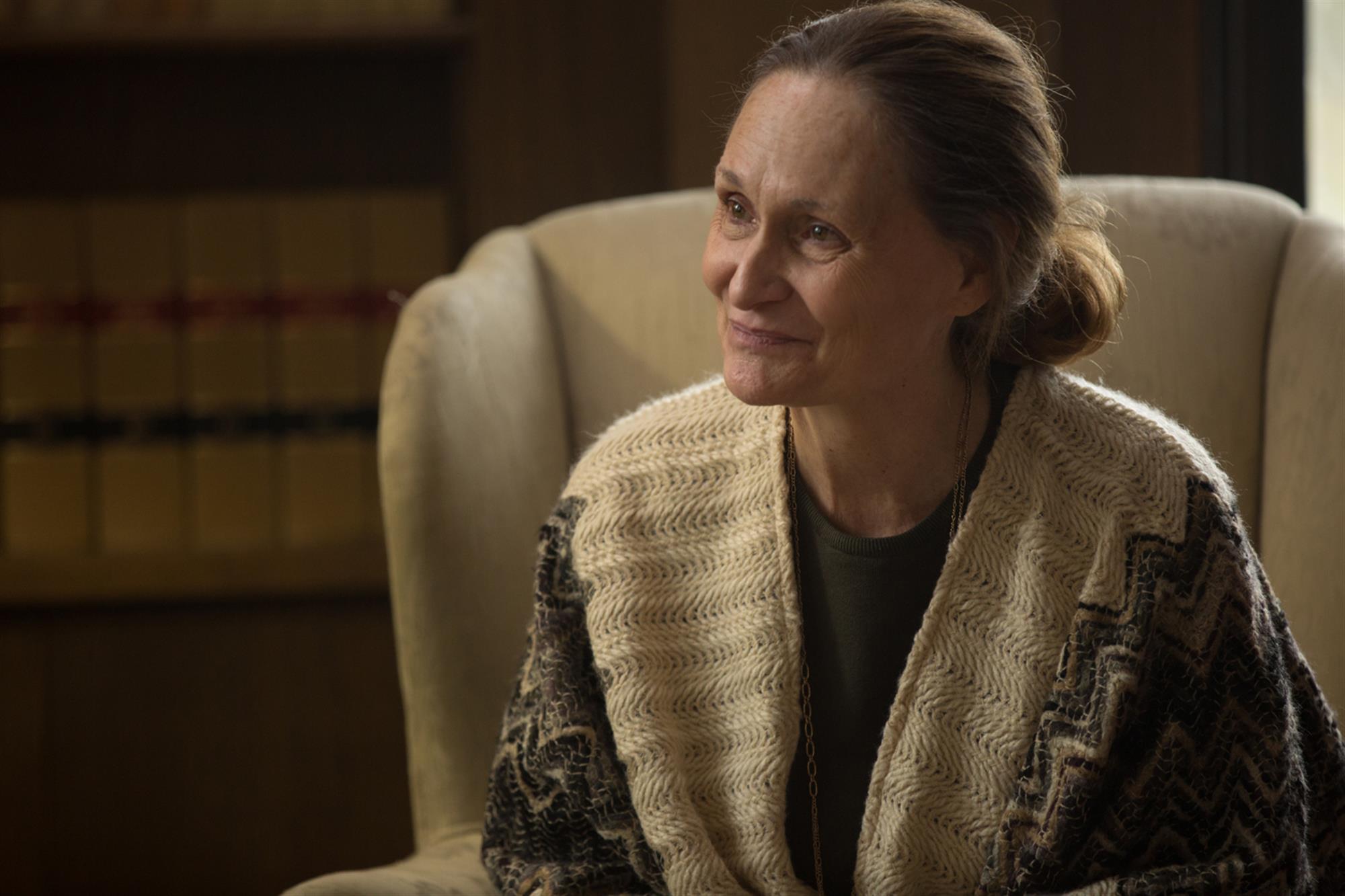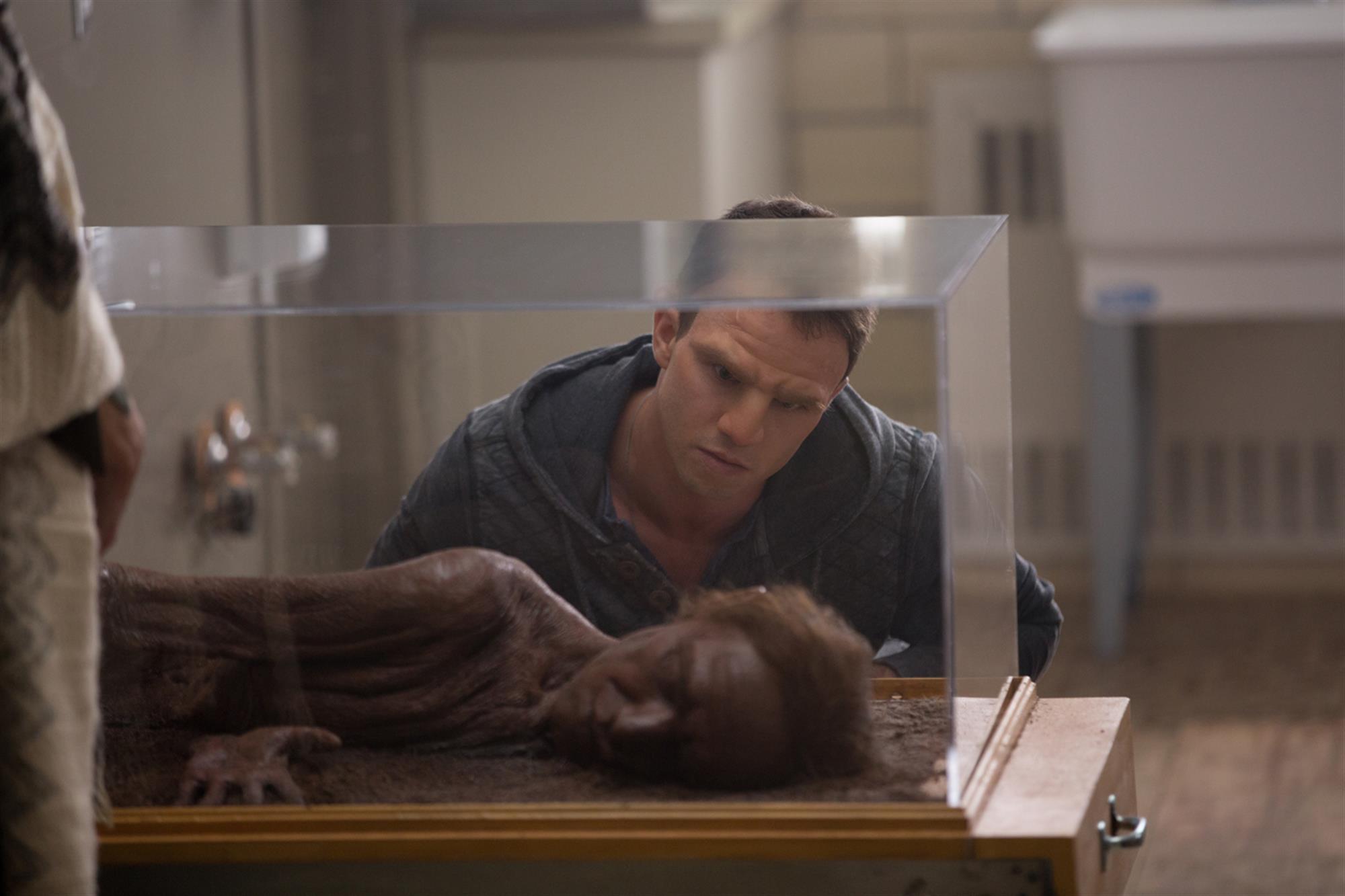Director Tim Disney was born into Hollywood royalty as the son of Roy E. Disney, making him Walt Disney’s grand-nephew. But that hasn’t stopped him from making a name for himself as a filmmaker in his own right outside of the Disney brand, having helmed the acclaimed 2008 drama American Violet and a number of other projects over the past two decades. He’s also an accomplished producer of documentaries and the upcoming Janis Joplin biopic. But Tim Disney’s latest release is the science fiction family drama William, a fascinating fable about two biochemists who clone a Neanderthal and raise him as their own son.
I sat down with Mr. Disney this week to discuss the film, his roots at the Walt Disney Company, and his take on the morality of genetic engineering.
Watch interview with director Tim Disney about sci-fi family drama William:
Mike Celestino, Laughing Place: Tell me a little about your history as a filmmaker prior to making William.
Tim Disney: My earliest exposure to fimmaking was from my father, who spent his career making Sunday night TV shows for Disney back in the day. One of my first jobs after college was working in the animation department at Disney. I had the great fortune to be there at the time when the animation department was being revived. I co-wrote the screenplay, with a couple other people, for the movie Oliver & Company, which at the time was a big deal and the biggest-selling animated feature of all time. It was eclipsed many times over by the next one, The Little Mermaid, and then the next one, The Lion King, and so on.
When I was working on the screenplay for Oliver & Company, Howard Ashman was in the next office writing songs for The Little Mermaid, which at the time I found annoying because I was trying to get some work done, but in truth it was just a great experience to be exposed to that at the time. I made lifelong friends there, I still have a strong connection to the animation business from that. I was really inspired by that. The main thing I learned from [working at Disney] was that it was a culture of quality. They were determined to make the best possible stories, products, movies. Everybody had good ideas, the good ideas would go into the mix, and then they would send us back out [to] come up with more good ideas, and more stuff. They just kept working things until they [were] the best they could possibly be.
It was difficult because you would get bored of stuff. Like, ‘Enough already. Let’s just go on and do the next thing.’ They were relentless with their pursuit of just making the best possible thing. Most of us don’t get the luxury of doing that. There isn’t the time or the resources to do that, so I really enjoyed that experience. And then I went on and did some other things. After I left Disney, I did the exact opposite. I went and I produced a game show with a partner. So instead of doing one movie every five years, we did six shows a day. That was a great experience, too.
Then I got sucked off into other businesses. I was in the software business, and since then I’ve had a sometimes-career as a filmmaker [while] always doing other businesses at the same time. And maybe that’s a good thing, because it’s really kind of a terrible business, a very difficult business. And so I’m really focused on finding stories that really resonate with me, and just trying to do it outside of the normal pathway.
LP: Tell me about how you came up with the idea for William, and the writing process for this film.
TD: The idea really came out of a reading jag that I went on. I just really got interested in the emergence of humans as Homo sapiens, the modern incarnation of Homo sapiens as a species. I started reading a lot of material about that, probably avoiding more important work I could have been doing. And a few things just impressed me about that: one is how unlikely our existence as a species is. It was never a foregone conclusion that we would survive and come to dominate the Earth the way that we have. We might not have.
[Second is] that we coexisted with at least three other human species who [were] equals for some time, and the Neanderthals are the best known of those. There was a lot of discussion about why the Neanderthals died out where we survived. It came to sound very self-congratulatory, the discussion of that. I got kind of annoyed with it and I thought, ‘What if the Neanderthals died out because they were better than us? What if it was the other way around? What if they died out because they were more virtuous than us? What if our special cultural characteristics that we congratulate ourselves on have a sinister side?
I think that takes the form of stories, and how we weaponize stories on an individual level, in our families, the stories we make up about our children that they rebel against to try to become themselves, and then on larger societal levels. That was the essence of the idea.
LP: How important was it for you to be scientifically accurate as far as the depiction of cloning in the movie? Can you tell me about the research process you underwent in preparation?
TD: I did some research. I won’t claim that I did it on a fully academic level. I read a lot of popular literature about it, stuff that’s written for more general audiences. I looked at a lot of stuff online, all these academic journals are there and available. It’s amazing the amount of material you can get. I reached out and corresponded with some archaeologists about it. It was important to make the science plausible, but not allow it to dominate the story, because really I think the story is about these other things.
But I wanted the science to be for real, and I think that the basic process that we describe is plausible, has been used for other species, and it’s important to understand that this is present, this is imminent. These things will happen, and we need to have conversations about them. The story is in part about the ethics of doing such a thing.
LP: As far as casting goes, how did you know when you found the right actor to play the adult William?
TD: It was hard to cast that part. We wanted, first and foremost, a very strong actor. But we also were looking for someone who had the physical attributes to sell the part. If we had cast a tall, skinny guy, we would have had to do all this extra work, prosthetics and costume stuff and all of that. That would have made it all a lot harder. We had to find the combo, and we were really lucky to find Will [Brittain, of Kong: Skull Island].
We knew instantly [when we met him], because we saw a lot of people, and some of them were really wonderful. But [with] Will, it was immediately obvious, as it often is in those processes, when he came in. He just killed it. He was great. In fact, I still have trouble looking at him without his makeup on.
LP: We also see flashbacks of William at several different ages throughout the film. How did you go about guiding those child actors to match what Will was doing in the role?
TD: It was difficult, because some of the ideas [like] ‘What’s a metaphor? Why doesn’t he value them?’ that are really built into the story in a very important way are difficult things to explain to a younger child. So I think we tried to keep their performances… I won’t say muted, but restrained. Child actors sometimes fall back on emotive things. They’re often trying to please the adults in the room when it’s happening. So I tried to just keep a lid on it, because it seemed like that would be most in keeping with the character, and it worked out really well. The throughline of all the kids, amazingly to me, works pretty seamlessly. It was difficult, but it all adds up to something believable.
LP: How did you strike a balance between making a science fiction movie and making a family drama?
TD: I really thought of it as a family drama, primarily. Like I said, I wanted the science to be plausible and I wanted to have it present, but not to dominate. I really felt like we played very much in favor of the drama side of it, which operates on a lot of levels. It’s a family story, it’s about otherness, it’s about growing up in a hostile world. After a couple of the recent screenings we’ve done, a lot of people have asked me about standardized testing, which I didn’t realize was as much of a theme in the movie as it is, but it is: how the world selects against people who are different. It’s just built into everything.
I was listening on my way over here [to] a really amazing podcast by people who are studying [Artificial Intelligence], and how AI is amplifying that phenomenon. Basically, AI is only as good as the data that it studies. It’s going to be used in pre-screening, resumes for employment, law enforcement, education, et cetera, and basically all the data is infected with bias. So I really worry about what’s going to happy to kids who are different. There’s going to be this whole technological bias built against them as well.
Which is [why] it’s important to tell these stories. We need artists and humanists involved in this. The engineers are great, but they’re not enough.
LP: One thing I definitely wanted to talk to you about was the locations, because every spot you featured was so beautiful. Where was this film shot, and why?
TD: We shot in Vancouver, British Columbia, because it’s a beautiful place [and] because there are certain production advantages to working there. They have a fantastic base of crew and talent there, so it’s a great place to work. There’s a lot of production in Vancouver as a result of that. Sometimes people will go there to get the tax credits and they [depict] it as [a different location], and we knew that would be a mistake. It’s such a beautiful place that we played it for what it is. I think the primeval force [feeling] was very important for the movie, that [William is] drawn to some kind of source. It’s a theme in the movie that we come back to, and figures into the ending. It was such a pleasure to work there.
LP: The film came across to me as very science-positive. What is your personal relationship with that topic?
TD: I’m a big science guy, but provided that we have a whole perspective. I spend most of my time now working in education issues, arts education in particular. And I worry that we’re so obsessed with STEM education that we’re forgetting that we think and communicate and feel on other levels. These are not add-ons, having band in high school is not some extravagance that we can’t afford anymore. It’s a core human activity. The cultures that we talk about in this movie were creating art, so it’s just as important an activity as the tool-making was. In fact a lot of the artifactual evidence we have of them is that, as opposed to their more prosaic workaday existence.
I’m a huge advocate of the complete experience. Kids get left behind if they don’t have these other means of communication.
LP: What are the questions that you hope the audience is asking about the morality of cloning as they’re walking out of this film?
TD: I’ll give you two answers to that: one is that the ethics of cloning are important to discuss. It’s already happened in China. More of it is going to happen with other species as well as humans, so we need to develop ethics around this. And that’s not something that any elite group can do, it’s something that has to emerge organically out of the culture. That means that we have to all be talking about it. What does it mean? I don’t know that it’s ‘wrong’ in a simple sense. It’s inevitable, so we have to develop ethics around it.
We can’t just say, ‘Don’t ever do it, it’s wrong.’ It will happen. So we have to figure out, ‘When is it okay? How is it okay? For what purpose are we doing it?’ That’s on the ethical side. As a story, I hope that people think about their relationship to narratives and how they use them in their own lives. At the time I was writing this, I had teenage sons who were going through that rebellion moment [of] adolescence. I think about the ‘story’ that I made up about them that they didn’t accept. I didn’t want to do that, but I did it anyway, as a parent. We need to be responsible with the stories that we tell, because they’re not all good, and we can hurt people with them. We see that playing out in our culture at large in a gigantic way. There’s an Armageddon of who controls the story happening, so I hope that people think about that.
William opens this Friday, April 12 in New York and Los Angeles.

